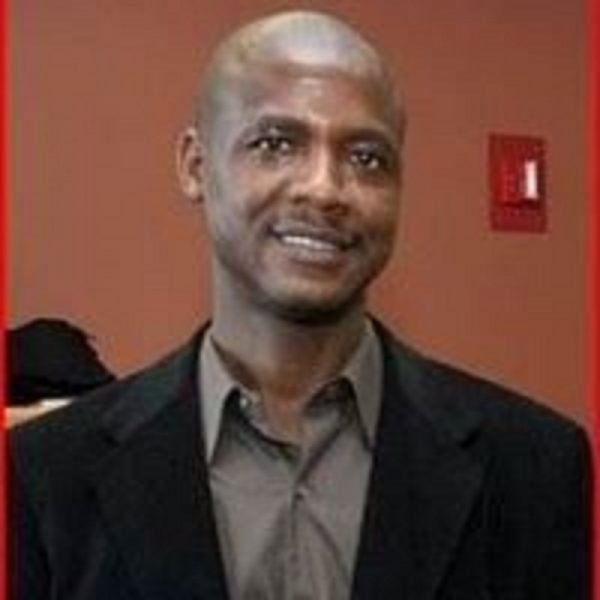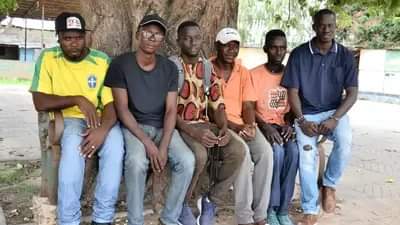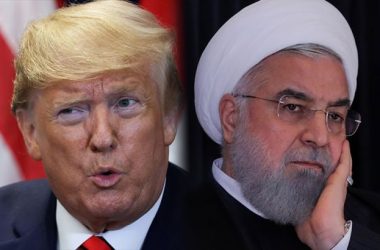
“A nation’s true greatness begins from little truths,” Mazisi Kunene, was a South African poet and an active supporter and organizer of the anti-apartheid movement in Europe and Africa says, so, what truth will set today’s youth free from the jailhouse of want and joblessness?
From January 19, 2017, to this day is almost four years since we, all Gambians, jointly coasted home to victory with a new-found enthusiasm for democracy. It has been so refreshing for those of us who witnessed the impunity of the years before this race started; confidence in democracy was at a low point.
That it has been 22 years now means generations of Gambians between 20 and 25 years old today,(“President Yahya Jammeh “post-millennials monumental children” typifying the ‘Age of Despotism’) were toddlers when struggles against malevolence dictatorship and Yahya Jammeh’s kleptomania were being fought for freedom and democracy.
They never really witnessed what we experienced. They never knew the complaints we lodged and our rejection of the lives we lived back then.
Our fathers witnessed colonialism and enjoyed its palliatives but rejected its unfeeling coldness to sensibilities and the pride of the “natives.” We grew up to peep for fresh air under the eerie suffocating legs of giants with booths of iron.
Our children today know only the cul-de-sac constructed for them by a generation of rulers without humanity. It is pretty tricky for those who have seen sunny days to describe their warmth to a whole generation of humans left in the cold by a system without kindness.
Thought for the youths
Since the pre-independence, Gambian youth have played a pivotal role in nation-building and economic development. Most of the founding fathers that led the struggle for our independence were relatively young. Sir Dawda Jawara was 37 years old, and all his colleagues were relatively young people between 36- 42 years old at the time except Ibrahima Garba Jahumpa, who was older).
Indeed, even the post-independence Police Field Force hierarchy was fueled by the active participation of young persons in nation-building at critical periods of our nation’s history.
The first abortive coup in 1981 was led by a 28-year-old Kukoi Samba Sanyang and a few others in his 12-member National Revolutionary Council (NRC), all in their 20s.
The subsequent July 1994 coup brought a 29-year-old Lieutenant Yahya Jammeh into power. Many of the military administrators of the Armed Forces Provisional Ruling Council (AFPRC) who governed the Gambia in 1994-1997 were in their 30s.
Similarly, the primary beneficiaries of Gambian indigenization policies in the early 1990s were young private sector entrepreneurs at relatively young ages, while super civil servants such, etc. held forth in public administration in their early 30s.
This trend of young people playing active roles in nation-building and economic activities continued well into our generation in the 1980s and 1990s, so it is not difficult to understand how we were able to muster the courage and determination to become entrepreneurs at this time.
While a concerted effort by the government and its international development partners, we can put in place several resources to aid the youth in accessing gainful activities, access to these resources is hardly automatic.
Most of the unemployed youths have to contend with a lack of collateral and rigid bureaucracies. However, the challenge of youth joblessness commands urgent attention, as it is perfectly capable of significant social disruption unless immediate comprehensive measures are needed to address it. It is not as if there is confusion over the definition of youth or even a shortage of policies on this youthful demographic.
We have been impressed with what the youth entrepreneurship in the likes of Edrissa Mass Jobe, Chairman of Atlas, which is a merger of Total and Elton Oils Gambia, Mr. Papa Yusupha Njie CEO Unique Solution Co Ltd, Mr.Muhammed Jah Chief Executive Officer at QCell Limited and, another dynamic young Lamin Kanteh of the premier online EYE AfricaTV team and other young entrepreneurs of small business owners in the Gambia.
Young Gambian entrepreneurs have been able to accomplish at such an age. It should serve as an inspiration to other young Gambians in various fields as well who blazed the trails in entrepreneurship at relatively young ages, while super civil such as, etc. held forth in public administration and public policy as well corporate in their early 30s.
This trend of young people playing active roles in nation-building and economic activities continued well into our generation in around 1999, so it is not difficult to understand how we were able to muster the courage and determination to register a vibrant independent newspaper at the time.

We have spent a lot of time mentoring, observing, and interacting with young Gambians. Today’s youth are no different from those of our generation about 30 years ago. They are faced with the same pressures, frustrations, uncertainties, and life difficulties that we met in our late twenties and early thirties.
However, the marked difference is how young Gambians apply themselves today. Most of us who made an impact in our early thirties came from modest means. We were not productive, and we did not have any noteworthy inheritance. Nobody did us any favors, and the older generation did not give us a pass or a nudge in the right direction.
The kleptocratic administration of Yahya Jammeh at the time made it extremely difficult for us to participate optimally in business, governance, and politics. We did not have easy access to social media, and there was no technology to aide our goals. We were big dreamers determined to make a difference. We were highly enlightened and career-oriented, so we were able to force our way through the door by working extremely hard.
As matters stand, the youth face not just a lack of jobs, but also underemployment, vulnerable employment, and inactivity. Some are compelled to migrate to risky foreign labor markets or lured into destructive behavior such as alcohol and drug abuse.
The Gambian youth born in the ‘Age of Despotism,’ you must know your worth. Do not settle for less, and do not allow yourselves to be used by selfish political interests. Challenge the status quo. Challenge the establishment.
The Gambian youth make up a sizeable portion of the Gambian populace. By extension, you have the loudest voices and the most significant potential. Alan Moore, a prominent British author, opined that “People should not be afraid of their government. Governments should be afraid of their people”. This is especially true about young Gambians. You are more powerful than you give yourselves credit for.
Our current President was victorious in large part due to the votes cast by young Gambians, and you must continue to remind yourselves of this fact because 2021 is a defining moment in our political history and is already fast approaching.
Crucially, young Gambians must eliminate distractions. Do not get carried away by the allure of good living, bling, fame, and fortune. Stay on the straight-and-narrow path.
Distractions are the proverbial pot-holes; they slow you down from reaching your destination and damage your wheels in the process. By all accounts, social media is the biggest distraction. It is a powerful tool but can also derail you from focusing on the bigger picture.
The most discerning amongst you will know how to navigate social media without hindering your ability to make significant inroads in the economic and political fabric of the Gambia.
Finally, take advantage of opportunities, no matter how small or inconsequential they may be at the time. Expect no helping hands. Moreover, when these opportunities present themselves, grab what you can. During graduation studies, one of our lecturers will always quip that “Power is never served a-la-carte.” This is indeed true in the context of where young Gambians currently are, and where they need to be.
Our nation is at a critical crossroads. The age bracket between 18-35 years constitutes most of our working population groups. Naturally, they should be the most productive and active segment of our country’s economic activity and nation-building efforts.
Unfortunately, the youth of today born in the ‘Age of Despotism’ are slothful, unemployed, and generally incapacitated. Some are unable to make ends meet and have not shown any sustained interest in holding a leadership position.
You abstain from holding governance positions at the local, state, and national levels. Ironically and confusingly, you allow to be used as street (and very recently, internet/online) thugs, miscreants, and protesters to pursue the selfish agendas of older politicians.
Despite all of this, there is much faith in the youth of today, but young Gambians need to start having faith in yourselves as well. You need to wake up from your slumber and pilot the much-needed change process urgently.
You must be willing to side-step all the pit-fall distractions and refocus your collective mindsets. You must be guided by a desire to excel, and you must continue to push yourselves to grow in a stable, competitive, and cut-throat environment that still exists today. Who knows? With a bit of conviction, commitment, and guile, you may be able to produce a young, vibrant, and dynamic Gambian as our President Barrow much sooner.





